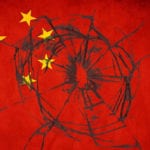 History
History  History
History  Weird Stuff
Weird Stuff 10 Wacky Conspiracy Theories You Will Need to Sit Down For
 Movies and TV
Movies and TV 10 Weird Ways That TV Shows Were Censored
 Our World
Our World 10 Places with Geological Features That Shouldn’t Exist
 Crime
Crime 10 Dark Details of the “Bodies in the Barrels” Murders
 Animals
Animals The Animal Kingdom’s 10 Greatest Dance Moves
 Movies and TV
Movies and TV 10 Box Office Bombs That We Should Have Predicted in 2025
 History
History 10 Extreme Laws That Tried to Engineer Society
 History
History 10 “Modern” Problems with Surprising Historical Analogs
 Health
Health 10 Everyday Activities That Secretly Alter Consciousness
 History
History 10 Dirty Government Secrets Revealed by Declassified Files
 Weird Stuff
Weird Stuff 10 Wacky Conspiracy Theories You Will Need to Sit Down For
 Movies and TV
Movies and TV 10 Weird Ways That TV Shows Were Censored
Who's Behind Listverse?

Jamie Frater
Head Editor
Jamie founded Listverse due to an insatiable desire to share fascinating, obscure, and bizarre facts. He has been a guest speaker on numerous national radio and television stations and is a five time published author.
More About Us Our World
Our World 10 Places with Geological Features That Shouldn’t Exist
 Crime
Crime 10 Dark Details of the “Bodies in the Barrels” Murders
 Animals
Animals The Animal Kingdom’s 10 Greatest Dance Moves
 Movies and TV
Movies and TV 10 Box Office Bombs That We Should Have Predicted in 2025
 History
History 10 Extreme Laws That Tried to Engineer Society
 History
History 10 “Modern” Problems with Surprising Historical Analogs
 Health
Health 10 Everyday Activities That Secretly Alter Consciousness
10 Insane But Brilliant Ways Ancient China Fought Its Wars
The Chinese made war into an art form. Thousands of years ago, they wrote strategy guides that are still referenced today. They were incredibly inventive and brought the art of deception into warfare in ways that other countries would never have imagined.
Chinese battle tactics were inventive, bizarre, and often downright brilliant. Their military history is full of some of the strangest ideas you’ll ever hear—and ideas you won’t believe really worked.
10 The Dancing Girls
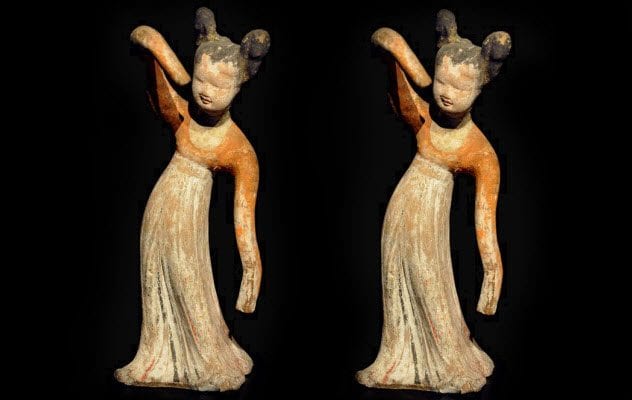
In 623, when he saw the Tuyuhun hordes storming down the hills to raid the Tang Empire, General Chai Shao knew he was in trouble. He was outnumbered, overpowered, and had the weaker ground. In a fair fight, he knew, he wouldn’t have much of a chance—and so he didn’t fight fair.
Instead of sending soldiers to meet the invading army, he sent out two beautiful women and a few pipa players. They walked onto the battlefield in front of the invading army and started doing a sexy dance.
The Tuyuhun were confused—and probably a little lonely. They stopped charging and watched the girls dance, trying to figure what in the hell was going on and where in the world the Tang army had gone.
Meanwhile, that army was marching around the hill. With the Tuyuhun distracted, the Tang army charged the Tuyuhun from behind and crushed them. A horde that had been raiding the country for years was finally defeated—because of two girls doing an erotic dance.
9 The Yue Suicide Squad
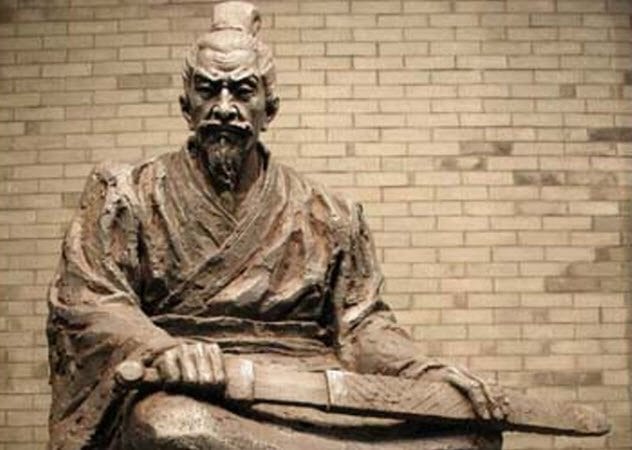
Nearly as soon as he took the throne in 496 BC, King Goujian of Yue had to deal with an invading army. He didn’t have much experience in leading a country or an army yet. He knew that fear and the element of surprise were important, so he tried them out—by having his men do the absolute last thing anyone would expect.
Before the battle, Goujian organized the most literal suicide squad in military history and put them on his front lines. He marched his men out onto the battlefields and had them stare the enemy in the eye. Then his front line slowly slit their own throats.
The invading army didn’t know what to make of this, except that it was freaky as hell to watch men cut their own throats while they hate-stare you down.
The rest of Goujian’s army charged into battle. The enemy army, now convinced that they were fighting complete sociopaths, was scared out of their wits. Their formations broke, and their lines fell—and Goujian won his victory.
8 The Burning Cattle Charge
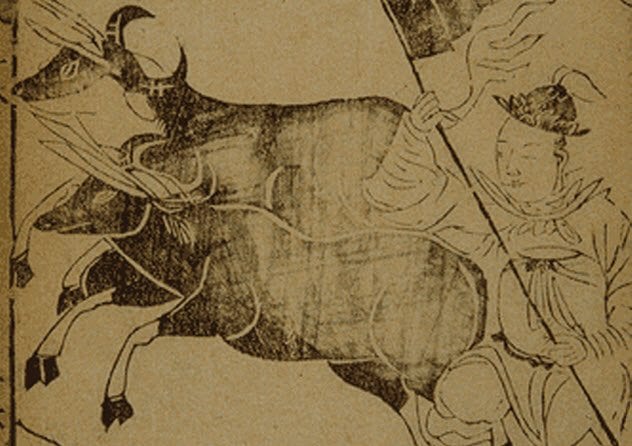
The city of Chi-mo had been under siege for five years before T’ien Tan was given charge of their army in 279 BC. Outnumbered, they were surrounded by 100,000 men against their 7,000—at least, by some likely exaggerated accounts. But the Chi-mo army had managed to hold their ground.
Then T’ien Tan fought the enemy army off—with cattle. He herded together 1,000 oxen, covered them with red cloth, and tied blades to their horns. The Chi-mo men soaked reeds in fat and tied them to the oxen’s tails. Then, in the middle of the night, they set the reeds on fire and let the oxen go.
Inside the city walls, old men and boys started pounding the drums as loudly as they could. The enemy army woke up—and saw 1,000 flaming cattle charging toward them.
Over the sounds of the drums and the cattle, they didn’t hear the soldiers of Chi-mo sneaking into position all around them. The Chi-mo army pounced. Overwhelmed by the stampede and the soldiers, the enemy army fled.
7 The Jealous Wife

The Xiongnu army had crushed the Han Empire in every battle. In 199 BC, the Han emperor retreated to the city of Pingcheng, but the Xiongnu pursued him. The city walls were surrounded. The Xiongnu horsemen cut off the city’s supplies and contact with the outside world and started to starve the people out.
Inside the city walls, the emperor’s adviser, Chen Ping, came up with an idea. They couldn’t beat their enemy on the field, but they might be able to get rid of them.
He had an artist paint a picture of the most beautiful woman that he could and had it sent to the wife of the Xiongnu commander. Attached was a note that read: “My emperor intends to surrender to your husband, and so, to win his favor, he is sending him a present of one of China’s famous beauties to be his concubine.”
Overwhelmed with jealousy, the Xiongnu commander’s wife destroyed the note. She went to her husband and demanded that he lift the siege immediately and they return home. By morning, the Xiongnu army was on their way home. The commander wasn’t afraid of any army, but he was afraid of his wife.
6 The Arrows Made Of Straw
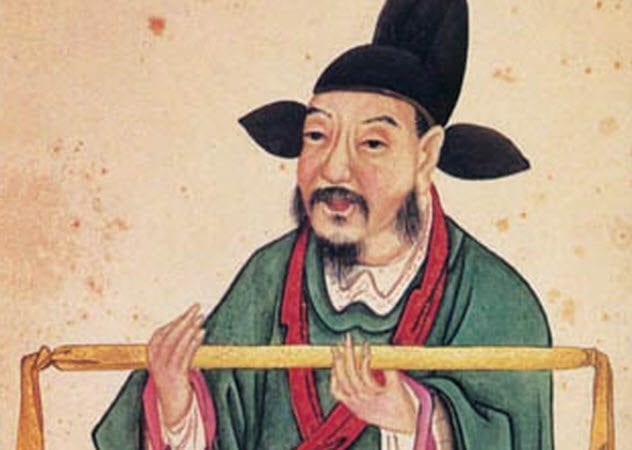
When Yin Ziqi led his army to invade the Tang Empire in AD 755, his men followed him out of respect. He was a capable and brilliant leader, and the defending army knew it. Their general, Zhang Xun, was sure that he could break the enemy’s spirit if he could kill Yin Ziqi.
But there was one problem. He had no idea what Yin Ziqi looked like. To find out, Zhang Xun ordered his men to stop defending their position with real arrows. Every archer in his army was issued a pack of arrows made of straw.
When Yin Ziqi’s men approached and saw these weak little things flying out at them, they became convinced that Zhang Xun’s army was out of arrows. They rushed over to report it to Yin Ziqi, and Zhang Xun got his first glimpse of his enemy.
Yin Ziqi was sure now that he was against a powerless enemy, and he charged forward. Zhang Xun’s men, though, used real arrows this time—and Zhang Xun ordered every single one of them to target Yin Ziqi. It didn’t take long before an arrow went through Yin Ziqi’s eye. With their hero dead, his army scattered and fled.
5 The Seven Captures Of Meng Huo
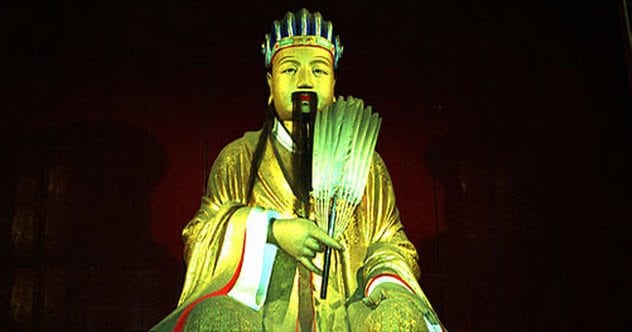
In the third century AD, the Shu Han kingdom was dealing with an uprising that wouldn’t be quelled. They had the power to beat the rebels in every battle, but they couldn’t break their spirit. No matter how many times the kingdom tried to stomp the rebels out, the insurrection kept popping back up.
Chancellor Zhuge Liang managed to capture the rebel leader, Meng Huo, and tried to persuade him that his followers had no chance. Meng Huo, however, would not believe it. The rebels, he told Zhuge Liang, would keep fighting until they won—even if he wasn’t alive to see it.
Instead of making a martyr out of him, Zhuge Liang let Meng Huo return to his army. They met on the field again, and Meng Huo was captured once more. When Meng Huo still refused to surrender, Zhuge Liang let him go—and captured him again.
Zhuge Liang had to capture and release Meng Huo seven times before Meng Huo finally realized that, no matter what he did, Zhuge Liang would defeat him. Finally realizing that it was hopeless, Meng Huo pledged allegiance to the throne. He ordered his followers to end the rebellion, and the insurrection ended forever.
4 The Parting Of The Wei River
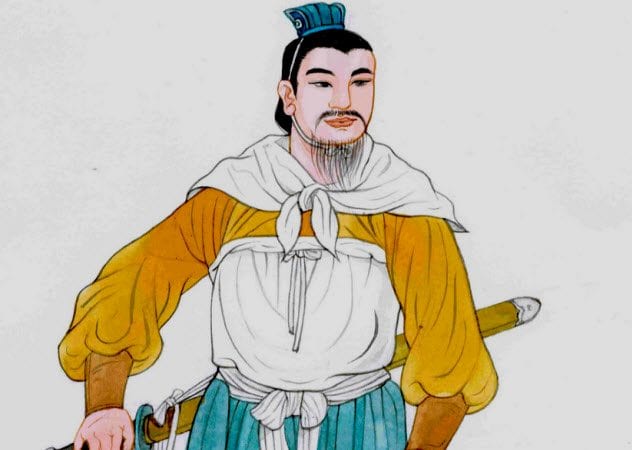
In 204 BC, Han Xin was a young and inexperienced commander fighting against a more capable foe. His enemy, Long Ju, had won more battles than Han Xin had ever seen. Long Ju was sure that he would make quick work of Han Xin—and that confidence, Han Xin realized, was how he could beat Long Ju.
The two armies were divided by a river, and both were waiting for the other side to cross. Han Xin ordered some of his men to go upstream and dam the river off with sandbags until nothing more than a trickle was in their way. Then he led his men across.
Han Xin’s army charged Long Ju’s men, but they didn’t fight long. Han Xin’s army feigned a retreat nearly as soon as the battle began. Long Ju, sure that his young rival was just a coward, charged after him.
As soon as Han Xin’s men crossed the river, though, they broke open the dam. The river came roaring toward Long Ju’s army. Some of his men were swept away, and some were trapped on the other side, unable to cross.
But Long Ju himself was stuck on the enemy’s side of the water with only a few men to defend him. Long Ju’s men could only watch from across the water as their commander was cut down in front of them.
3 Sima Yan’s Burning Navy
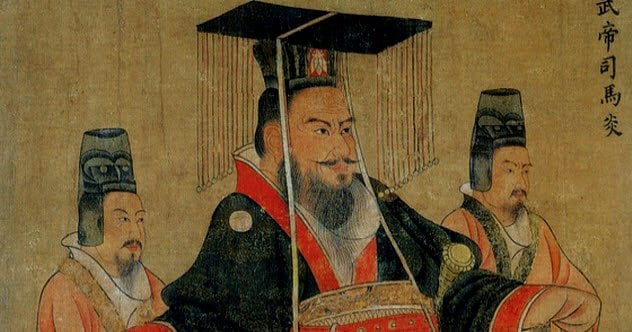
Sima Yan had conquered nearly all of China. In AD 280, only one kingdom stood in his way—the kingdom of Wu. Their king lived in terror, knowing that it was just a matter of time before Sima Yan attacked. The king spent his time drunk and paranoid. Sure that everyone around him was a spy, he had nearly all his advisers executed.
When he heard that Sima Yan’s ships were approaching, the king of Wu set up a bamboo barrier across the river to block them. He would trap them in the river and destroy them before they could reach the city.
It was good plan. But as it turned out, his paranoid fears weren’t so crazy after all. He really was surrounded by spies, and they told Sima Yan’s general, Wang Jun, about the barricade.
Wang Jun had his men build huge rafts and load them with straw dummies soaked in oil. He dressed the dummies in armor and sent them sailing toward the capital of Wu. When they hit the barricade, a trip line went off and the ships burst into flames. They burned through the barricade and went into the capital, filled with what looked like burning demons.
The people of Wu, sure that they were being attacked by fiery demon ships, fled in terror. Then Wang Jun simply had to walk in to capture the kingdom.
2 The Battle Of Chengpu
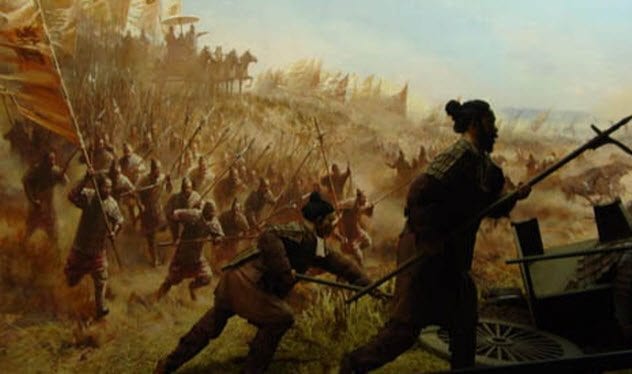
When the Chu army saw the army of Jin marching forward in 632 BC, they probably noticed something strange. Every one of their chariots had a tree dragging behind it. With the attack about to begin, though, the Chu army didn’t have time to worry about it. They just did the best they could to fight off the enemy.
It didn’t take long before the Jin army retreated, and, sure they were winning, the Chu army chased them down. The chariots, though, still had those trees dragging behind them. The branches kicked up dust as they went, and before they knew it, the Chu army was lost in a cloud.
But the Chu army didn’t know that they were fighting only one flank of the Jin army. The other flank had fought its way over to the other side. Once the Chu army was lost in the dust, that flank came stampeding toward them from behind.
The Chu army was blind in the dust. When they turned their attention to the new soldiers attacking them from behind, the flank that they thought was retreating turned on them. The Chu army was trapped and blinded. They didn’t last long.
1 The Death Of Zhuge Liang
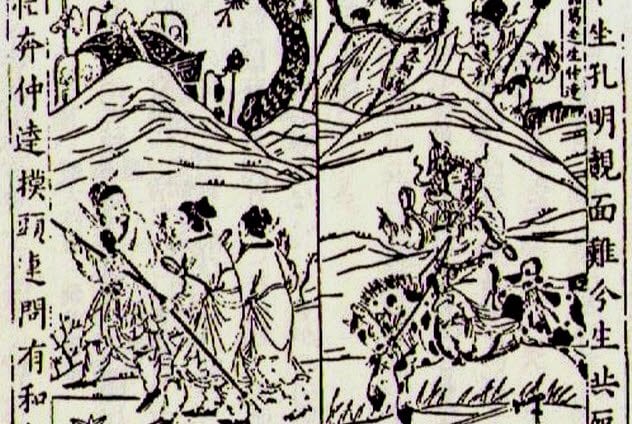
Zhuge Liang was one of China’s most feared generals. He had a reputation for always having a trick up his sleeve. When he put Sima Yi’s army under siege, Zhuge Liang was outnumbered. But Sima Yi still wouldn’t meet in the field, sure that Zhuge Liang would have a trap waiting for him.
As the siege wore on, though, Zhuge Liang got sick. He died in AD 234 before the battle could begin. Disheartened, his men gathered up his body and started to march home.
Sima Yi, upon hearing that Zhuge Liang was dead, took the opportunity and struck. Sima Yi sent his men after the retreating army, sure that he could crush them easily without their expert strategist.
All Zhuge Liang’s men had to do to stop them, though, was to turn around and pretend to be ready to fight. As soon as they did, Sima Yi became convinced that Zhuge Liang had faked his death as a trap. His army, terrified of the dead man, retreated to their city—and Zhuge Liang’s body was brought home.








